Related Research Articles

Carl de Vogt was a German film actor who starred in four of Fritz Lang's early films. He attended the acting school in Cologne, Germany. Together with acting he was also active as a singer and recorded several discs. His greatest hit was "Der Fremdenlegionär". An extremely successful actor in his early career, he died in relative obscurity in 1970.
Meinhart Maur was a Hungarian-German film actor. He appeared in more than 40 films between 1919 and 1954. He was born in Hajdúnánás into a Jewish family. He fled Nazi Germany in 1936 and settled in London, where he died in 1964.
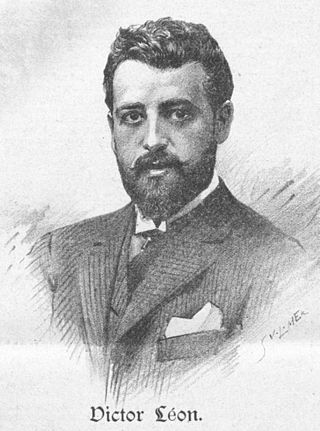
Victor Léon, also Viktor Léon was a well-known Jewish Austrian-Hungarian librettist. He collaborated with Leo Stein to produce the libretto of Franz Lehár's romantic operetta The Merry Widow.
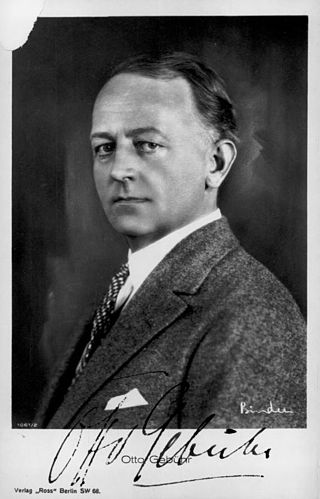
Otto Gebühr was a German theatre and film actor, who appeared in 102 films released between 1917 and 1954. He is noted for his performance as the Prussian king Frederick the Great in numerous films.

Blandine Ebinger was a German actress and chansonniere.
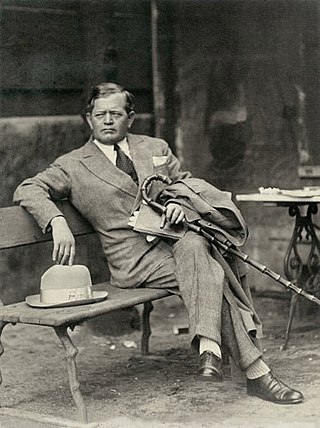
Albert Steinrück was a German stage and film actor of the silent era. He appeared in more than 80 films between 1910 and 1929. He starred in the 1923 film The Treasure, which was directed by Georg Wilhelm Pabst. He was also a leading role in the German expressionist 1920 film The Golem, in which he plays a rabbi.
Hellmut Lange was an actor and journalist who became famous as an action hero on TV and eventually succeeded as presenter on popular TV show Kennen Sie Kino? or Do You Know Film?

Paul Graetz was a German actor and star of the Weimar cabaret.

Reinhold Schünzel was a German actor and director, active in both Germany and the United States. The son of a German father and a Jewish mother, he was born in St. Pauli, the poorest part of Hamburg. Despite being of Jewish ancestry, Schünzel was allowed by the Nazis to continue making films for several years until he eventually left in 1937 to live abroad.

Olga Limburg was a German theater and film actress. She began her artistic career in 1901 with a commitment at the Municipal Theatre of Poznan. Since 1902, she played at several of Berlin's leading theaters including the Tribune, the Metropol Theatre, Berlin Lustspielhaus, the comedy and the Theater am Kurfürstendamm. During the early part of her theater career, Limburg usually played supporting roles. Later she worked in the "comical oldies" plays.
Ernst Stahl-Nachbaur was a German film actor.
Emil Rameau was a German film and theatre actor, and for many years the deputy artistic director at the Schiller Theater. He appeared in nearly 100 films between 1915 and 1949.
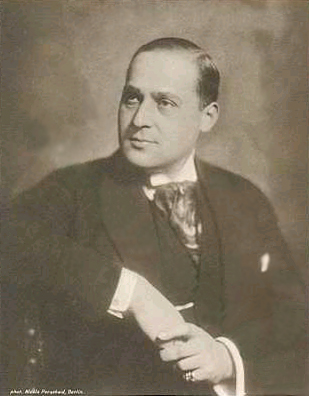
Felix Basch (1885–1944) was an American-Austrian actor, screenwriter and film director.

Hedda Vernon was a German actress, screenwriter, and film producer. She was a prominent star of the early Weimar Republic, and had her own film production company.

Otto Rippert was a German film director during the silent film era.

Robert Faesi was a Swiss writer and academic concerned with Literature and language

The Women House of Brescia is a 1920 German-language silent film directed by Hubert Moest. The film's alternative name was The House of Pillory. The film was considered highly controversial for the depiction of prostitution. The film's story was set in medieval Europe during the fourteenth century. The film was based on Karl Hans Strobl's novel Das Frauenhaus von Brescia. The Pillory houses were the places where enemy women captured during wartime were imprisoned so that the people could exploit them as they wished. The depiction of prostitution was the basis for the picture's rejection by the British Board of Film Classification in 1921 and its being banned in Germany.
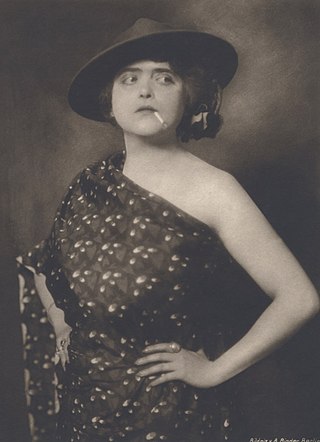
Rosa Porten was a prolific German screenwriter, actress, and director during the silent film era.
Decla-Film was a German film production and distribution company of the silent era, founded by Erich Pommer and Fritz Holz in February 1915.

Prostitution is a 1919 German silent drama film directed by Richard Oswald and starring Conrad Veidt, Reinhold Schünzel and Gussy Holl. It was released in two parts Das gelbe Haus and Die sich verkaufen. It was one of several enlightenment films made during the era by Oswald. The physician Magnus Hirschfeld was an advisor on the production. The first part premiered at the Marmorhaus in Berlin.
References
- ↑ "Hubert Moest - Biography, Photos, Filmography, Awards, Nominations and Videos at MComet". mcomet.com. Archived from the original on 18 May 2014. Retrieved 18 May 2014.
- 1 2 3 "Hubert Moest" (in Czech). osobnosti.cz. Retrieved 18 May 2014.
- ↑ "Hubert Moest" (in Russian). kinopoisk.ru. Retrieved 29 April 2014.
- ↑ "Filme regizate de Hubert Moest - CinemaRx.ro". cinemarx.ro. Retrieved 18 May 2014.
- 1 2 3 Horst O. Hermanni (2009). Von Dorothy Dandridge bis Willy Fritsch: Das Film ABC, Volume 2. Books on Demand. p. 114. ISBN 9783833423741 . Retrieved 18 May 2014.
- ↑ Harty, Kevin (1999). The reel Middle Ages: American, western and eastern European, Middle Eastern, and Asian films about medieval Europe. McFarland. p. 107. ISBN 9780786405411 . Retrieved 18 May 2014.
- ↑ "Das Frauenhaus von Brescia - Museum Folkwang". Museum Folkwang. Retrieved 18 May 2014.
- ↑ Goble, Alan (1999). The Complete Index to Literary Sources in Film. Walter de Gruyter. p. 481. ISBN 3110951940 . Retrieved 18 May 2014.
- ↑ Focus on Film (Eighth ed.). Tantivy Press. 2 July 2007. p. 49. Retrieved 18 May 2014.
- ↑ Klossner, Michael (16 May 2002). The Europe of 1500-1815 on film and television: a worldwide filmography of over 2550 works, 1895 through 2000. McFarland & Co. p. 161. ISBN 9780786412235 . Retrieved 18 May 2014.
- ↑ "Hubert Moest". bfi.org.uk. Archived from the original on 18 May 2014. Retrieved 18 May 2014.